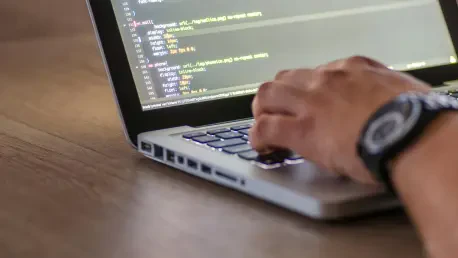As AI continues to reshape the landscape of software engineering, we’re thrilled to sit down with Laurent Giraid, a renowned technologist with deep expertise in artificial intelligence. With a focus on machine learning, natural language processing, and the ethical implications of AI, Laurent offers a unique perspective on how enterprises can navigate the challenges and opportunities of integrating AI into coding and development processes. In this conversation, we explore the risks of replacing human engineers with AI, the lessons from high-profile failures, strategies for safe adoption of AI tools, and the evolving role of human expertise in an AI-driven world.
How do you view the potential dangers of enterprises relying heavily on AI to replace human engineers in software development?
The risks are significant, especially when you consider the complexity of software systems. AI can be incredibly powerful for generating code quickly, but it lacks the nuanced judgment that human engineers bring. For instance, critical errors—like accidentally deleting a production database—can happen if AI isn’t constrained by the same safety protocols we apply to junior engineers. These systems don’t inherently understand the context or consequences of their actions, which can lead to catastrophic failures in live environments. Beyond technical errors, there’s also the risk of losing innovation and problem-solving that comes from human experience, something AI can’t replicate yet.
Can you elaborate on how the absence of human oversight might affect the outcome of intricate software projects when AI takes the lead?
Absolutely. Complex software projects often involve ambiguous requirements, trade-offs, and unforeseen challenges that require human intuition and creativity to navigate. AI might churn out code based on patterns it’s learned, but it can’t ask the right questions or anticipate edge cases the way a seasoned engineer can. Without human oversight, you risk ending up with solutions that look good on paper but fail in real-world scenarios—think brittle systems that break under stress or security flaws that go unnoticed until it’s too late. Human engineers act as a critical filter to catch these issues before they spiral out of control.
What’s your take on balancing the financial benefits of using AI in coding with the undeniable need for skilled human engineers?
It’s a delicate balance. AI can indeed cut costs by automating repetitive tasks or speeding up development, but the potential for costly errors—like data breaches or system outages—often outweighs short-term savings. I believe the smart approach is to use AI as a tool to augment human engineers, not replace them. For example, AI can handle initial code drafts or testing, freeing up engineers to focus on architecture, strategy, and oversight. Companies should invest in training their teams to work alongside AI, ensuring that cost savings don’t come at the expense of quality or security.
From incidents like the deletion of a production database or major data leaks, what key insights should companies take away about AI and development practices?
These incidents are stark reminders that basic software engineering principles can’t be ignored, no matter how advanced AI becomes. Take the database deletion case—it shows why separating development and production environments is non-negotiable. AI, like any inexperienced actor, shouldn’t have unchecked access to critical systems. Similarly, data leaks often stem from simple oversights, like unsecured storage or poor policy enforcement. The lesson here is clear: AI can amplify mistakes if not managed properly, and companies must enforce strict guardrails and maintain human oversight to prevent such disasters.
What steps would you recommend for businesses looking to integrate AI coding tools into their workflows without inviting unnecessary risks?
First, start small—use AI for non-critical tasks or in isolated environments where errors won’t have major consequences. Establish clear boundaries, like restricting AI access to production systems, and treat it with a degree of caution, almost as if it could act unpredictably. Implement robust software engineering practices, such as version control, automated testing, and thorough code reviews, to catch issues early. Additionally, train your team on how to leverage AI effectively while understanding its limitations. It’s about creating a synergy where AI boosts productivity, but humans remain the ultimate decision-makers.
How do you see the role of human engineers evolving as AI coding tools become more sophisticated over time?
I think human engineers will always have a place, even as AI advances. While AI might take over rote coding tasks or even handle significant portions of development, the need for human expertise in strategy, ethics, and complex problem-solving won’t disappear. Engineers will likely shift toward roles that involve designing systems, setting parameters for AI, and ensuring outputs align with business goals. It’s less about being replaced and more about adapting—learning to collaborate with AI, focusing on high-level thinking, and staying ahead of the curve by mastering new tools and methodologies.
What is your forecast for the future of AI in software development over the next decade?
I believe we’ll see AI become an even more integral part of the development process, handling upwards of 60-70% of routine coding tasks within the next ten years. However, its role will likely stabilize as a powerful assistant rather than a full replacement for human engineers. We’ll see more emphasis on hybrid workflows, where AI accelerates productivity, but human oversight ensures reliability and innovation. The bigger challenge will be addressing ethical concerns and building trust in AI systems—especially as they’re deployed in critical industries. I’m optimistic, but I think the industry will need to prioritize safety and accountability to avoid high-stakes missteps.









